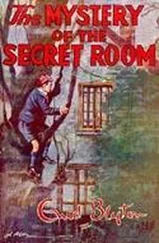———
“To be in this place you got to be butt ugly, toothless, and fat as pull-apart buns,” the yard captain at NCWF had told Gordon his first week there. As the yard captain said it, there were beautiful women passing behind him, porters with mops and brooms pushing trash bins on wheels, some of them thin, and with all their teeth, young things smiling and winking at Gordon, as if the joke was on the yard captain, who was himself obese.
There was one woman who immediately commanded Gordon’s secret attention. Her brooding, childlike face and large dark eyes moved him. That was what beauty was, he supposed, when someone’s face stirred feelings. She was always reading, her eyes cast down toward pages. More typically, the good-looking ones were overly aware of their beauty. It was something to which they subjected others, a thing they hawked, bartered, and controlled. Hauser had never been up for that kind of charade, in prison or in his other life, the real one, which was becoming less real to him. This girl did not know to use her beauty to manipulate, didn’t even know she was beautiful was Gordon’s sense, and when he one day looked at her and kept looking at her, she glanced at him, and before she turned away, he saw fear or what he thought was fear.
He didn’t know which unit she lived in. She’d been on yard crew, but they must have switched her because she wasn’t out there anymore. A few times, he saw her in the law library, working like every other prisoner on her habeas petition. Once, in the chapel, praying with a little group. And once in receiving, waiting on a package, and he had felt irrational jealousy that she was being sent a package—by whom? A rival, probably a man. She was too pretty for the package not to be from a man. And if the package was instead from the girl’s mother or sister, it meant she was not just Gordon’s foundling but someone’s beloved relative, and the connection he imagined she and he might have would be overshadowed by her loyalty to other real people, unknown to him, involved in her life.
———
NCWF stood for Northern California Women’s Facility, but the guards called it No Cunt Worth Forty K, which made it sound like these guards all faced a dilemma between their job and easy action with prisoners. In that fantasy, the guard pulled a slot lever by punching his time card, and got either dollar signs in triplicate or cherries in a row. And if the guard pulled the lever and the cherries came up, it was for each man to have the strength of character, the good judgment, to resist.
“You got a lot of self-control, that’s one thing I’ll say about you,” Gordon’s father had said to him when he’d picked up young Gordon from the Martinez public library, which was bigger than their own tiny library in the town near the Carquinez Strait where Gordon grew up. His father was a metal fabricator and thought that anyone who could sit and look at little symbols on a page all day must be denying other impulses. But for Gordon, reading was his impulse. It made the world bigger. In high school he fell in love with Dostoevsky, literature that matched his gloomy doubt. Dostoevsky was no belief in anything but the greasy earthbound world where humans wandered, fought, corrupted, and killed. Then again, Dostoevsky was a Christian, and those who fought and wandered in his novels had lost their way while God had not. Dostoevsky was something vast—universe-sized—a universe that had order, but not fixed and artificial Greek order. It was a scattered realm of chaotic trials, and Gordon knew he was stepping into the territory of truth when he read it.
His father was dead now, and Gordon finally had the kind of job his father would have approved of—unionized, with benefits. Gordon had never intended to work in a prison. There had been layers of resignation, attempts to stay in graduate school, the passing of oral exams on his second try, the granting of the midway point—the master’s degree in English literature. But the dissertation that he had planned to write on Thoreau—Thoreau’s image of a spiritual molting season, of a new man, the fateful concept of an American Adam, an idea Gordon was fond of because of its precipitous arrogance and who doesn’t want to change his life? Be reborn unfettered and sinless? The whole pursuit had been a crushing source of stress. He and his advisor didn’t get along. The more progress he made of the sort his advisor wanted, the less able he was to locate any passion for his own subject. He felt trapped into an impossible commitment. He had debt, and he was about to lose his teaching fellowship. He needed to work. He found an adjunct position at a local community college in Oakland. The job barely covered his living expenses and left him no time for his dissertation. Maybe that was its upside. He was free to not work on it. But the adjunct work was intermittent. Broke and somewhat desperate, he submitted an application for a teaching position posted by the California Department of Corrections. He interviewed. They wanted to hire him as a full-time teacher, and just like that his stress over money faded away. His friend Alex filed his dissertation on Melville and went on the job market as an Americanist, even as Alex slagged Americanists, said they were a bunch of cornballs. Alex got the welcome reception, the interviews, the job talks. People called Alex the wunderkind even though he was the same age as Gordon and their other peers. Alex looked about eighteen; that was why. Alex knew how to behave around powerful people, presented the right blend of irony and deference. There were people from the department who took him under their wing, coached him. People who had never quite warmed to Gordon. Gordon went out of his way to remain friends with Alex. He wasn’t envious, he told himself.
———
Before he realized it, the days of teaching at NCWF were structured by whether he might get a glimpse of this girl he liked wondering about. She averted her eyes when Gordon looked at her. He pondered trying to talk to her.
When Gordon made the discovery that she worked in cosmetology training, the chanciness of his days ended. There was a salon in cosmetology where staff could get haircuts for twelve dollars. He signed up, and made sure to go when she was there. On the momentous day, he sat down, was draped, by her, right up close, in an apron. The touch of her fingers to his scalp riveted him to the barber chair, setting off a chain reaction in his nerves.
It could have been the case, in the barber chair that day, that he was hypersensitive to touch, since he had been alone for months. The corner of the comb, when the girl drew it along the part of his hair, sent a shower of tingles down his head and neck. He was a wiring diagram, lighting up. The touch of this girl’s comb produced a feeling that was both terrific longing and something like longing fulfilled.
“You have nice hair,” the girl said. He had utterly normal and unexceptional hair. Straight, and brown.
It was strange to Gordon how sometimes beauty was magnificent and other times it was nothing and did not move him. Her skin was bad, and the bad skin made her even prettier, it made her real. She wore the state-issue tennis shoes, “bubblegums,” the girls called them, shoes that meant you were indigent, because if you had any hustle at all, you’d order brand-name sneakers from a mail-order catalogue. She didn’t seem to notice or care that she had no adorning marks of catalogue supply privilege, of outside help. In Gordon Hauser’s dream of her, the state-blue clothes seemed to him almost like hospital scrubs, a nurse’s clothes, not prison-issue: the uniform of a person who takes care of others, and she did take care. She trimmed his hair, touched his head with her comb.
Читать дальше








![О Генри - Меблированная комната [The Furnished Room]](/books/415396/o-genri-meblirovannaya-komnata-the-furnished-room-thumb.webp)
![О Генри - Комната на чердаке [The Skylight Room]](/books/415780/o-genri-komnata-na-cherdake-the-skylight-room-thumb.webp)


